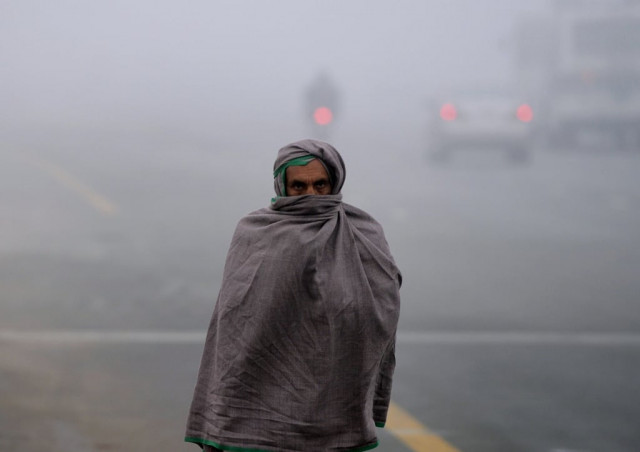Fading dew points to warming winters
Experts link decline to rapid urbanisation, loss of greenery & rising temperatures

Residents of Islamabad have observed a subtle yet telling change in the capital's winter mornings this year — less frequent dew formation and reduced visibility, suggesting gradual but persistent shifts in the region's microclimate.
According to meteorologists and environmental experts, early-morning dew, once a familiar hallmark of Islamabad's cooler months, has become increasingly rare in recent years. The decline, coupled with more frequent fog and haze, not only affects visibility but also signals changes in temperature patterns, humidity levels, and air circulation.
Dr Tahir Khan, Director at the Pakistan Meteorological Department (PMD), explained that dew forms when ground temperatures drop significantly — a phenomenon known as ground-level inversion.
"Moisture in the air condenses into droplets when the ground cools sufficiently," he said. "However, rapid urbanisation in the capital has curtailed this natural process. With more cemented surfaces and fewer green areas, ground temperatures no longer fall low enough to support dew formation."
Dr Khan added that Islamabad's once-abundant greenery and open landscapes had naturally encouraged dew formation. "Now, in areas where urban expansion has intensified, dew rarely forms," he remarked.
He further noted that large-scale deforestation around the capital has disturbed the city's ecological equilibrium.
"Many native bird species have disappeared, pollution levels have increased, and the local ecosystem has been destabilised. Unplanned urbanisation inevitably carries environmental consequences," he warned.
Dr Khan emphasised the need for strategic urban planning to protect the environment and preserve agricultural land.
"Fertile agricultural areas are being converted into housing societies and farmhouses. To conserve farmland, Pakistan must adopt vertical construction models — as China has done — to reduce sprawl. China, having learned from its environmental challenges, is now actively restoring its ecosystems. Pakistan must follow a similar course to safeguard its environment, biodiversity, and agricultural resources for future generations," he concluded.
Environmental expert and climate advocate Syed Munir Ahmed, Founder and Executive Director of Devcom-Pakistan — an organisation known for initiatives such as the Pakistan Green Initiative, Green Neighbourhood Campaign, Pakistan Mountain Festival, and Pakistan Environmental Awards - echoed these concerns.



















COMMENTS
Comments are moderated and generally will be posted if they are on-topic and not abusive.
For more information, please see our Comments FAQ